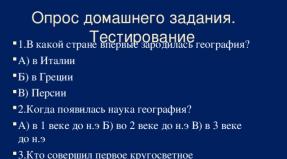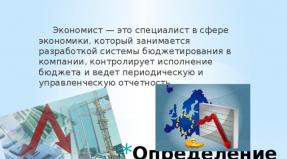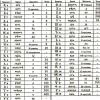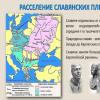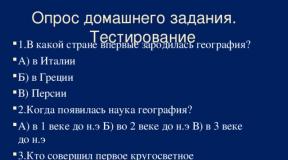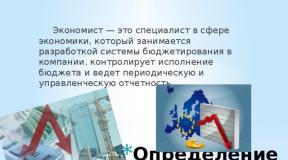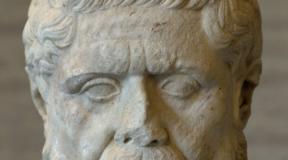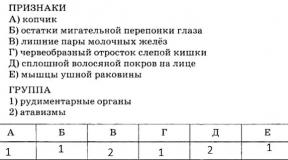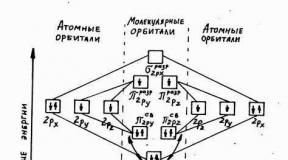Presentation on choosing a profession "economist". Presentation of the profession of economist Profession of economist presentation for children
Completed: student of class 10 “B” of MAOU “Secondary School No. 2”, Zavodoukovsk, Chistyakov Ilya Vyacheslavovich
Download the presentation “Profession - Economist” (0.5 Mb.)
Economist- specialist in economics, expert on economic issues. Economists are called both scientists (that is, specialists in the field of economic science) and practitioners who work in the field of research, planning and management of economic activities.
Specifics
An economist is a person who writes articles and other materials on economic policy.
In organizations, economists take part in the development of a budgeting system, monitor budget execution, as well as prepare and generate periodic and management reporting. The job responsibilities of representatives of this profession include research, planning and economic support of the financial and economic activities of the company.
Activities
- determining the system of remuneration and incentives for all categories of employees of the enterprise;
- analysis of the reasons for overspending of the wage fund;
- work related to calculations and processing of large volumes of information expressed in numbers; preparation of economic justifications, certificates, periodic reports, annotations and reviews
- Depending on their professional experience and general level of erudition, economists can act both as financial analysts and as experts
- collecting, processing, organizing information about economic phenomena and processes (to achieve the best results for enterprises and organizations);
- analysis of the progress and results of economic activity, assessment of its success;
- improvement of the process of economic activity;
- enterprise activity planning;
Places of work
- banks;
- government agencies dealing with economic issues;
- financial planning and fund distribution departments;
- financial and economic departments;
- financial organizations (tax inspectorates, pension funds, insurance agencies);
- consulting companies;
- research institutes
Advantages and disadvantages
- Pros of the profession:
- Economists have been and remain the most sought-after specialists in the labor market.
- High profit payment. From $400 and up.
- Disadvantages of the profession:
- One of the main employer requirements for candidates is experience in similar positions.
- It will take more than one year before you become a highly qualified specialist capable of giving accurate forecasts and effective recommendations.
A Little History
Early economists include Aristotle, Xenophon, and the Brahman Chanakya, who was an advisor to Emperor Chandragupta and the first economist in history.
Why an economist
I chose this profession because I like it, I think that I have the qualities that an economist should have:
- ability to make quick and correct decisions
- well developed memory
- honesty
- good faith
- optimism
- responsiveness
- goodwill
Activities:
counting expenses and income;
development of an action plan aimed at stabilizing and improving the company’s economic activity;
comprehensive economic analysis of economic activity
Medical contraindications:
The work of an economist is not recommended for people with diseases:
neuropsychic;
cardiovascular
;
chronic infectious.
Bibliography
http://www.ucheba.ru/prof/978.html
http://7budget.ru/detail.php?ID=43873
http://www.lentachel.ru/articles/1518
http://www.superjob.ru/contests/3735/
Economist
- a specialist who analyzes financial and economic activities in order to improve them.
Professional skills:
knowledge of basic economic laws and principles, methods and means of planning;
knowledge of the market segment;
competent accounting and document management;
knowledge of specialized computer programs
The main tasks of the profession:
collection, processing, assessment of primary economic information;
analysis of accounting and reporting information for the purpose of making business decisions and obtaining an assessment of the efficiency of functioning of enterprise facilities;
forecasting economic phenomena and processes;
participation in planning the economic activities of the enterprise;
development of a rational system for organizing accounting and reporting based on the choice of effective accounting policies;
organizing work to account for the presence and movement of assets, liabilities and capital, determining the results of the economic and financial activities of the enterprise;
practical application of the principles and rules of auditing basic business operations.
Thank you for your attention!!!
Economist
Performed:
pupil
9
"B" class
Frolova Tatyana.
Checked:
Yalanskaya
N.P.
Economist
– this is a profession, a lifestyle, and a state of mind.
Today, being an economist is prestigious and profitable. This profession has been one of the most popular in recent years and, it seems, is not going to lose its position in the near future.
Professional quality:
good factual memory;
Analytical mind;
ability to work with large volumes of information;
responsibility;
foresight;
Places of work:
banks;
consulting companies;
accounting, financial planning and fund distribution departments; financial and economic departments;
the field of financial forecasting.
Directions existing in economics
Finance and accounting;
Marketing;
Management;
Applied computer science in economics;
Tax and duties specialist;
Economic universities of Novosibirsk
1. Novosibirsk State University of Economics and Management - NINH
2. Novosibirsk State Technical University
3. Novosibirsk State University
4. Siberian University of Consumer Cooperation
5. Siberian Academy of Finance and Banking
6. Siberian Independent Institute
7. Novosibirsk State Agrarian University
8. Novosibirsk State Pedagogical University
9. Novosibirsk Humanitarian Institute
10. Siberian Academy of Public Administration
11. Siberian State Transport University
12. Siberian State University of Telecommunications and Informatics
13. Novosibirsk branch of the Modern Humanitarian Academy
14. Novosibirsk Institute of Economics and Management
15. Novosibirsk branch of the Russian Academy of Entrepreneurship
16. Novosibirsk branch of the Russian State Trade and Economic University
17. Branch of the St. Petersburg Institute of Foreign Economic Relations, Economics and Law in Novosibirsk
18. Novosibirsk branch of the St. Petersburg Academy of Management and Economics
19. Branch of the Moscow Institute of Entrepreneurship and Law in Novosibirsk
20.
Berdsky
branch of Novosibirsk State Technical University
21. New Siberian Institute
Areas of application of professional knowledge:
government agencies dealing with economic issues
industrial and agricultural enterprises;
educational institutions
hotel and restaurant business;
organizations and enterprises of small, medium and large businesses;
financial institutions
research institutes, Academy of Sciences.
History of the economist profession
The profession of economist arose hundreds of years ago, when the basic economic concepts of “commodity”, “exchange”, “money” began to exist. Over the past centuries, the functions of this specialist have noticeably changed and expanded. Today, an economist collects and analyzes data on production activities, then evaluates how successful it is and ultimately prepares proposals for management to improve production and labor technology.
Economist salary
On average, a beginning economist can count on $700-800. Much depends on the specifics of the industry: in the construction industry, food industry, and in banks, salaries can be higher – from $1000. With experience, income will increase. In Moscow, the average salary of a specialist who has worked in a certain field for about two years is $1,500-1,800.
Description of the presentation by individual slides:
1 slide
Slide description:
2 slide
Slide description:
3 slide
Slide description:
4 slide
Slide description:
Economist is a modern profession. Although the word “economics” itself was coined in Ancient Greece and meant “housekeeping”. Aristotle is considered the first economist, who created theories of the exchange of goods, their value and utility. Classical economic theory was born after the works of the great economist Adam Smith. The 19th and 20th centuries saw the heyday of modern economics, which became one of the most popular sciences. An economist is a specialist who analyzes financial and economic activities. An economist is a specialist who analyzes the activities of an enterprise, develops plans for economic actions for the future in order to save and reduce costs, identify reserves, and build a competent economic development policy.
5 slide
Slide description:
An economist is one of the most significant specialists in an enterprise or organization. No enterprise can operate without a business plan. It is this employee who sets the vector of movement for the joint efforts of all employees. You need to set your priorities and goals correctly in order to get maximum profits with minimal losses. To work as an economist, you need to have a specialized education, successful experience in drawing up business plans, the ability to conduct research based on formulas and available data, analytical thinking and mastery of special programs. Advantages of the profession: variety of activities, influence on economic processes. Limitations of the profession: high competition in the labor market
6 slide
Slide description:
The profession of an economist belongs to the “Man – Sign” type, it is associated with working with sign information: texts, numbers, formulas and tables, calculations. It requires logical abilities, the ability to concentrate, interest in working with information, developed attention and perseverance, and the ability to operate with numbers. The profession of an economist belongs to the “heuristic” class; it is associated with analysis, research, control and planning. It requires originality of thinking, a desire for development and constant learning.
7 slide
Slide description:
An economist is a specialist who analyzes financial and economic activities. The production process is continuous, so ensuring the functioning of all its factors is the main task of economists. Economists not only collect the necessary statistical material, tabulate it, group it, calculate it, plan it, but they themselves are the organizers of production. During the implementation of the plan and when unforeseen deviations occur, they take them into account and issue the necessary recommendations to management.
8 slide
Slide description:
An economist analyzes the economic activities of an enterprise, recommends methods of saving, as well as improving the financial results of the organization. Other tasks of an economist include: searching for hidden reserves of an enterprise, preventing unnecessary expenses and losses. In general, the work of an economist is aimed at increasing the efficiency of using various resources of an enterprise and organization. The work of an economist is also related to documents, calculations and interaction with enterprise employees.
Slide 9
Slide description:
To successfully master the profession of an economist, basic knowledge of economics and mathematics is required. A qualified economist must know: economics, mathematics; statistics, data processing programs; market patterns, financial transactions; document flow, standards for conducting economic activities at an enterprise, etc. A qualified economist must be able to: analyze significant amounts of data; conduct research based on formulas and available data; draw up business plans, design changes, etc.
10 slide
Slide description:
To successfully work as an economist, you must have the following professionally important qualities: a tendency to work with information, developed logical abilities, ability to concentrate, developed mathematical abilities, emotional stability.
11 slide
Slide description:
An economist can work either independently or in a team that may consist of several specialists. Most often, representatives of this profession work indoors. These can be offices of companies and organizations. Work occurs primarily while sitting, using a computer. Typically, this is a quiet activity, with little travel or business meetings. An economist is quite independent in his activities. He can make his own decisions within the framework of the assigned tasks, limited by the rules and regulations of his profession.
12 slide
Slide description:
Medical restrictions for an economist: diseases of the musculoskeletal system; nervous system; of cardio-vascular system; organs of vision; mental illness; attention disorders; thinking disorders. In the presence of these diseases, work in the profession of economist can lead to deterioration of health, as well as create insurmountable obstacles to mastery and growth within this profession.
Slide 13
Slide description:
As a rule, the profession of economist can be obtained at institutions of higher professional education.
Slide 14
Slide description:
The profession of economist is quite difficult to master. Despite all its popularity, there is always a shortage of good specialists in the labor market. On the other hand, the market is oversaturated with specialists who are not of the highest quality, but who create high competition. Therefore, the choice of this profession should be serious, with a willingness to develop in this area. The following educational institutions prepare certified economists with higher education in Moscow: State University - Higher School of Economics (SU-HSE); Moscow State University named after. M.V. Lomonosov (M.V. Lomonosov Moscow State University); Moscow State University of Economics, Statistics and Informatics (MESI); Financial University under the Government of the Russian Federation (FU under the Government of the Russian Federation); Russian State University of Oil and Gas named after. THEM. Gubkin (RGUNG), etc.
Slide description:
Possible ways to develop an economist: Specialization and development of related areas. Economists can specialize in specific areas of production, business, and banking. Often, the professional growth of an economist is associated with mastering new techniques and ways of working, acquiring new knowledge and skills. Also, a person with the profession of economist can master related specializations, such as marketing, financial analyst, business analyst, etc. Managerial path of development. In this case, an economist can begin to engage in management activities, head an analytical or economic department, etc. In the case of this direction of career growth, it is recommended to develop management skills and master such professions as: manager.
Completed by: 10th grade student Pichkalev Vasily Chernovskoy Secondary School named after. A. S. Pushkina

An economist is a specialist in the field of economics who develops a budgeting system in a company, monitors budget execution and maintains periodic and management reporting.
- Definition

- Demand for the profession
In fact, there is no area where the position of an economist would be unnecessary or unpromising. Starting from planning the economic direction of some small department of an enterprise or just a private enterprise and ending with large-scale economic planning of the country's activities. The knowledge gained through training in the economic profession and work experience can be transferred to opening a successful private business.

- How to become an economist?
Almost everything an economist needs to know is taught in the economics departments of many universities in the country. It is not difficult to become a student at an economics university; it is more difficult to find a well-paid job later, since the increased demand for such specialists, observed several years ago, led to their oversupply in the labor market. Those who have recently mastered the specialty of economist are recommended not only to gain practical skills, but also to follow modern specialized literature, as well as attend various specialized training seminars.

- Economist-financier - deals with all financial operations of the company;
- Accountant-economist - analyzes financial and economic activities, and also maintains accounting and accounting of funds and inventory in the enterprise;
- Economist-analyst - collects and analyzes economic information important for the company;
- Labor economist - performs all work related to wages at the enterprise.
- Categories

- The position of economist is in demand in many manufacturing and financial companies, commercial organizations and a number of other firms.
- Robot places

- A universal profession, a competent person will be able to realize himself without any problems;
- Professional knowledge and skills will help in starting your own business.
- Advantages

- Practice shows that working with numbers is routine and boring;
- High competition in the labor market is especially noticeable for inexperienced university graduates.
- Flaws

- Responsibilities of an Economist
- Financial analysis of the enterprise's activities.
- Economic planning of economic activities.
- Accounting for accounts payable and receivable.
- Calculation and control of the cost of goods.
- Accounting for inventory items and warehouse balances.
- Work with contracts and primary documentation.
- Preparation of management reporting.
- Interaction with external and internal auditors.
- The functions of an economist, depending on the profile of his work and the specifics of the company’s activities, may differ from those given above.

- Higher economic education.
- Knowledge of financial analysis and accounting.
- Experience working with contracts and primary documentation.
- PC knowledge (basic programs and 1C).
- Requirements

- Ability to analyze large amounts of information;
- High concentration;
- Good memory;
- Organizational skills;
- Communication skills;
- Patience.
- Personal qualities

- Viral carriage (for example, tuberculosis)
- Dysfunction of the musculoskeletal system (sciatica, rheumatism, severe flat feet)
- Joint diseases (for example, polyarthritis)
- Severe speech, vision, and hearing defects
- Neuropsychiatric diseases
- Contraindications

An economist's salary varies from 25 to 70 thousand rubles per month. The salary largely depends on the amount of work and the list of functions performed by the specialist. An assistant economist, a position often found in large enterprises, usually receives a salary approximately half that of the chief specialist. The average salary of an economist is 45 thousand rubles per month.






1 of 6
Presentation on the topic: My future profession. Economist
Slide no. 1

Slide description:
Slide no. 2

Slide description:
Description of the profession: An economist is a specialist in the field of financial planning, research and management of financial and economic activities. An economist takes part in the organization’s budget planning system and monitors its expenditure, conducts audits, and often does accounting himself.
Slide no. 3

Slide description:
Types of activities: collection, processing, organization of information about economic phenomena and processes (to achieve the highest results of enterprises and organizations); analysis of the progress and results of economic activity and assessment of its success; improvement of the process of economic activity; planning of enterprise activities; determination of the system of remuneration and incentives for all categories of employees of the enterprise; analysis of the reasons for overspending of the wage fund; work related to calculations and processing of large volumes of information expressed in numbers; preparation of economic justifications, certificates, periodic reports, annotations and reviews
Slide no. 4

Slide description:
Places of work: banks; government agencies dealing with economic issues; departments of financial planning and distribution of funds; financial and economic departments; financial organizations (tax inspectorates, pension funds, insurance agencies); consulting companies; research institutes Professional skills: professional knowledge in the field macro- and microeconomics, statistics, financial planning and budgeting; knowledge of specialized computer programs for automating the activities of organizations (1C: Enterprise, etc.); knowledge of tax and labor legislation
Slide description:
Specifics of working as an economist: Advantages of the profession: Economists have been and remain the most sought-after specialists in the labor market. High wages. From $400 to $1,500 and above. Disadvantages of the profession: One of the main employer requirements for candidates is experience in similar positions. It will take more than one year before you become a highly qualified specialist capable of making accurate forecasts and effective recommendations. Jobs for an economist: Graduates find application of your knowledge in production, in business, in the financial sector, and in science. But according to statistics, about 50% prefer banks or consulting companies. Personal qualities: - Ability to analyze a large amount of information, - Good memory, - High concentration, - Patience, - Communication skills, - Organizational skills. Salary and prospects for the profession of an economist: You can start from the position of an ordinary economist, in the long term - become a manager of an enterprise who is responsible for the development of the company, its competitiveness, controls and coordinates the activities of all structural divisions. On average, a beginning economist can count on $700-800. Much depends on the specifics of the industry: in the construction industry, food industry, and in banks, salaries can be higher – from $1000. With experience, income will increase. In Moscow, the average salary of a specialist who has worked in a certain field for about two years is $1,500-1,800.
